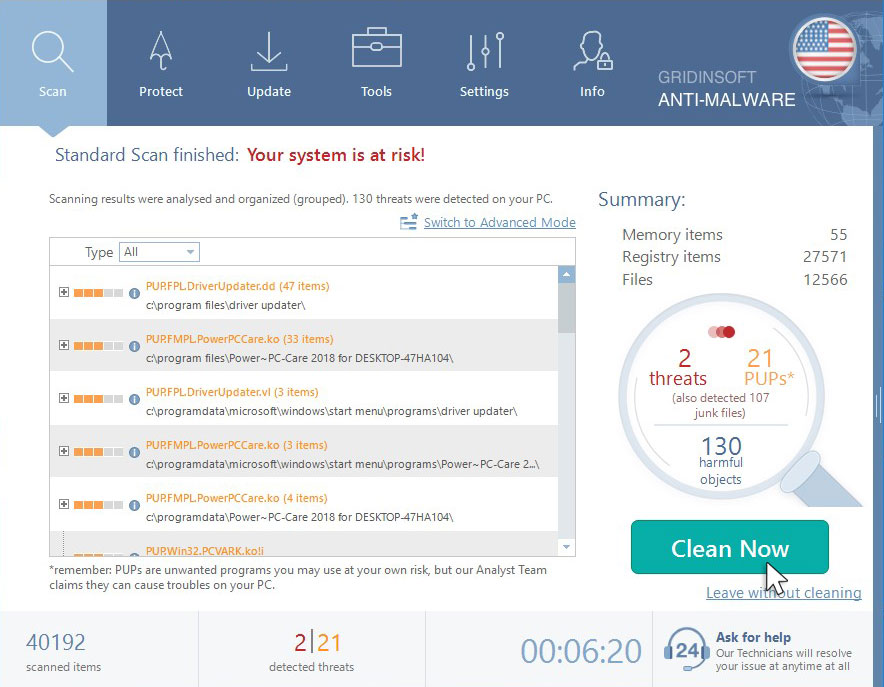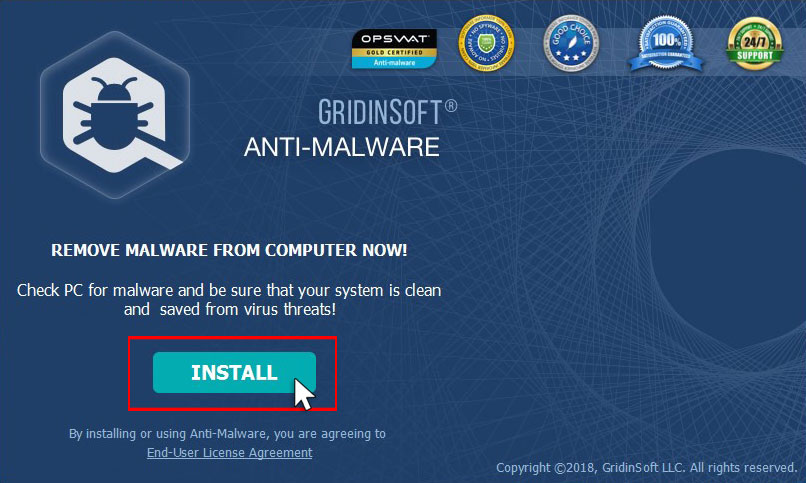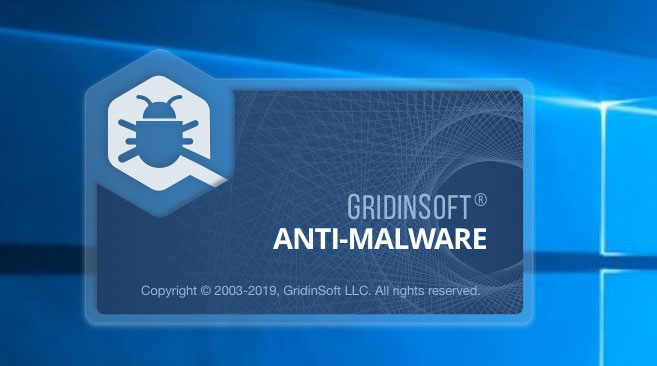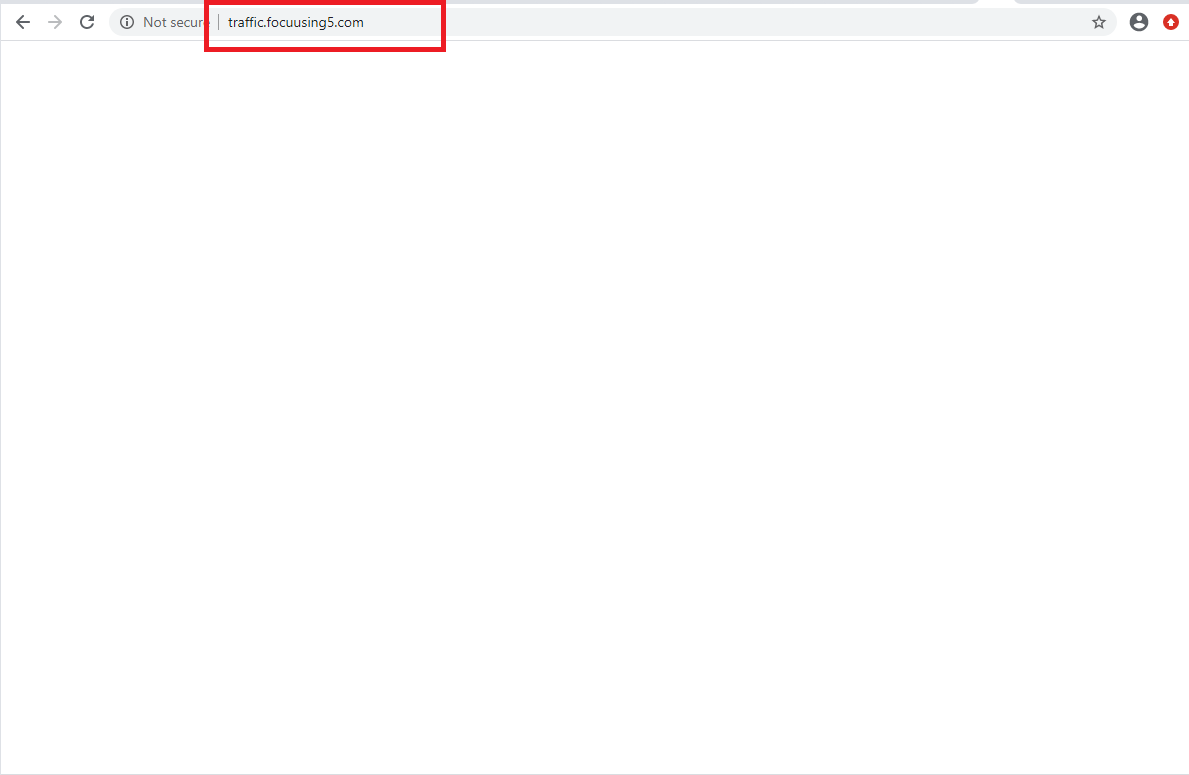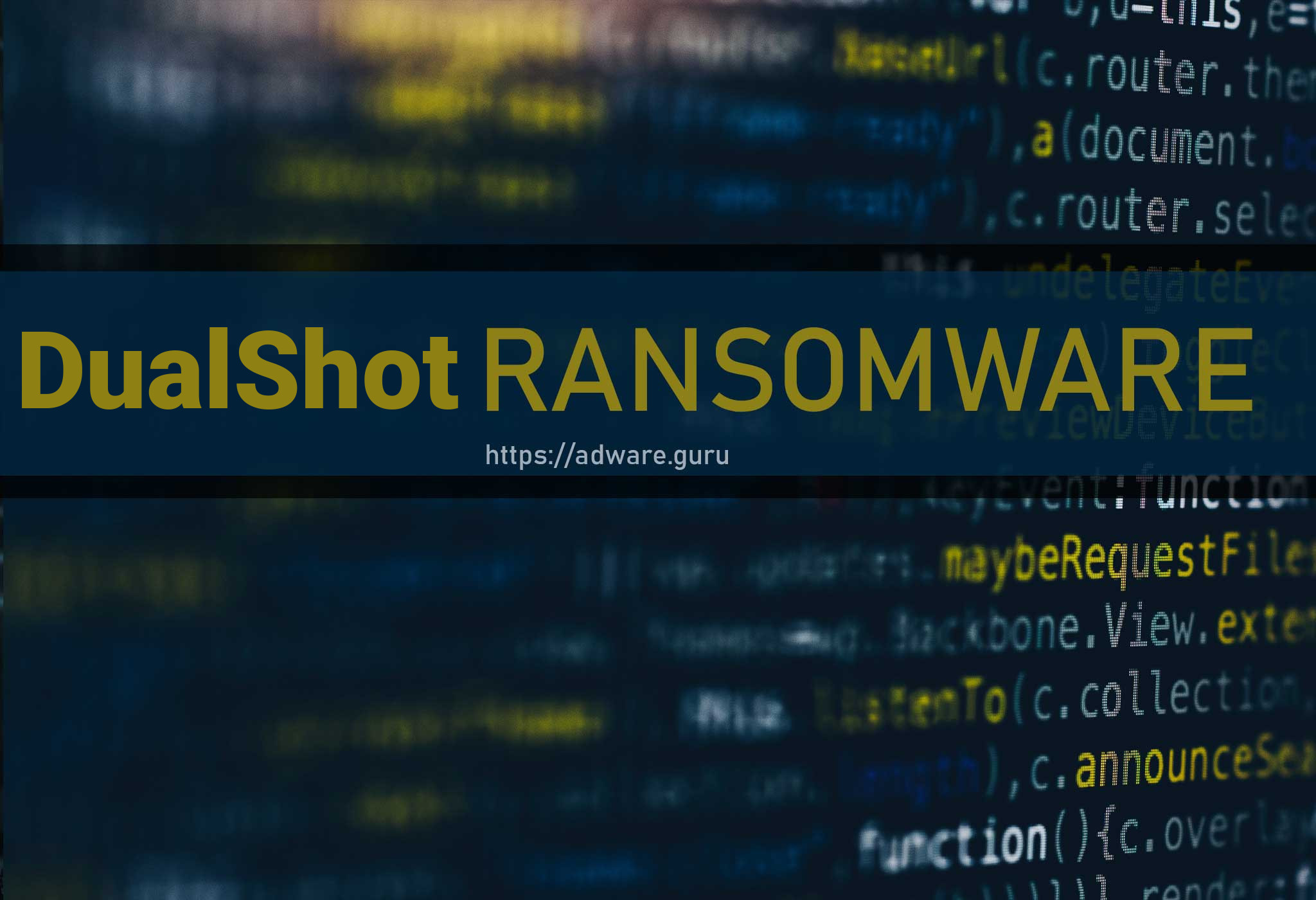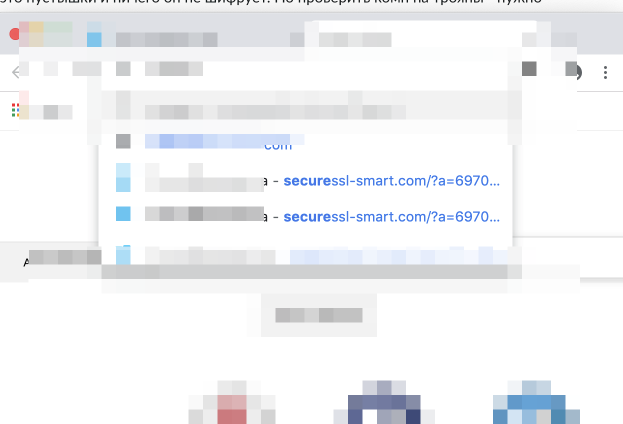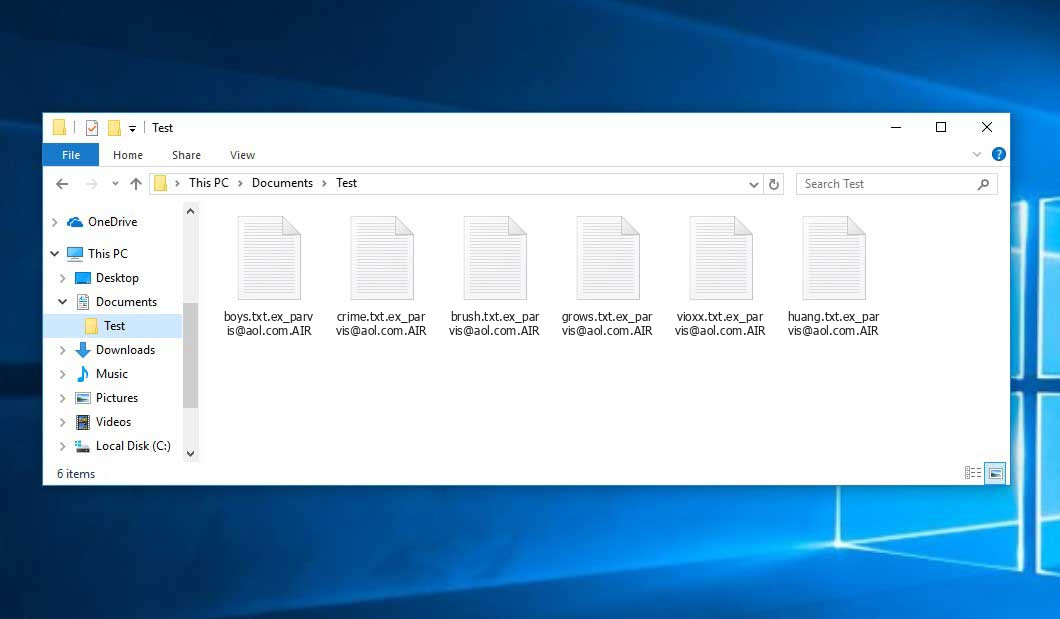Remove Geneve Virus
Geneve Virus Ransomware
The Geneve stands for a ransomware-type infection. Geneve was elaborated particularly to encrypt all major file types. As soon as the encryption is finished, Geneve places a special text file into every folder containing the encrypted data.The message given by Geneve text file requesting the ransom is absolutely the same as the statements given by other ransomware virus representatives. It literally discusses that the info is encrypted which the only way to bring back it is to use a an unique decryption key. Sadly, this is absolutely true. The sort of cryptography mechanism applied by Geneve is still not properly examined. Still, it is definitely specific that each victim may be given the specific decryption key, which is totally unique. It is impossible to bring back the files without the key available.
Another technique of Geneve is that the victims cannot get to the key. The key is saved on a specific server run by the frauds related to Geneve ransomware. To get the key and recover the important info people have to pay the ransom.
Geneve encrypted your documents, but that might not be the only damage done to you. The ransomware might still be hidingon your computer. To identify whether this holds true, we suggest downloading GridinSoft Anti-Malware.
Download GridinSoft Anti-Malware
GridinSoft Anti-Malware Review, How to get free trial?, EULA, and Privacy Policy.
Nevertheless, regardless of the asked for amount, people need to stay away from paying the ransom. Cyber frauds are not fair, so they tend to completely ignore what their victims feel about the problem, even when the payment reaches their pockets. This is why paying the ransom generally does not give any positive result and people just waste their money for nothing.
We strongly recommend that you do not contact these crooks and definitely do not transfer money into their accounts. It is said to admit that there are no utilities able to crack Geneve ransomware and to recover the data data for free. Thus, the only right decision is to recover the lost data from the available backup.
Virus Summary
| Name | Geneve Ransomware |
| Type | Ransomware |
| Short Description | The ransomware encrypts all the data stored on your system and requires a ransom to be paid on your part supposedly to recover your important files. |
| Symptoms | File encryption by the ransomware is performed by means of the AES and RSA encryption algorithms. |
| Distribution Method | Spam Emails, Email Attachments |
| Removal Tool | GridinSoft Anti-Malware |
Remember that the world wide web is now overwhelmed with threats that look similar to Geneve ransomware. Harmful programs of such kind are normally elaborated to encrypt important information and to state the need prior to the user to pay the ransom. The peculiarity of all such ransomware threats is that all apply a comparable algorithm to produce the unique decryption key for information decryption.
Therefore, as long as the ransomware is still being developed or has some hidden bugs, manually recovering the information is simply not feasible. The only way to prevent the loss of your essential information is to regularly create backups of your important information.
Remember that even if you create such backups, they need to be put into a special storage utility not connect to your main computer. You may use the USB Flash Drive or external hard disk drive for this purpose, or refer to the help of the cloud storage. If you store your backup files on your common system they may be encrypted along with other files, so it’s certainly not a good storage place.
How did ransomware infect my computer?
There are numerous ways used by online frauds to distribute Geneve virus. Although it is uncertain how exactly Geneve injects your PC, there are some leaks through which it may infiltrate the system:
- integration with third-party software application, especially freeware;
- spam emails from unknown senders;
- sites rendering free hosting services;
- pirated peer-to-peer (P2P) downloads.
Typically Geneve virus might exist as some legitimate software application, for example, in the pop-ups instructing users to execute some crucial software updates. This is the typical technique used by online scams to persuade people into downloading and installing Geneve infection manually, by means of their direct participation in the installation process.
Additionally, the criminals might refer to various e-mail spam methods to inject harmful codes into copmuter. So, they may refer to to sending unsolicited spam emails with tricky notices promoting users to download the attachments or click on certain download links, for example, the ones encouraging users to open some receipts, documents, tax reports or invoices.
Needless to mention, opening such files or clicking on such dangerous links may significantly harm the system. Fictitious Adobe Flash Player update alerts may result in Geneve ransom injection. When it comes to the cracked applications, these illegally downloaded programs may also contain destructive codes leading to Geneve secret installation. Lastly, injection of Geneve may take place by methods of Trojans that privately get injected into the system and install malicious utilities without the user’s approval.
Is there any method to prevent the injection of Geneve ransom virus?
Although there is no 100% guarantee to avoid your computer from getting infected, there are some pieces of suggestions we wish to share with with you. First of all, be extremely careful when you surf the web and specifically while downloading totally free apps. Stay away from opening suspicious email attachments, especially when the sender of the email is not familiar to you.
Keep in mind that some freeware installers may include other unwanted utilities in the package, so they may be malicious. Make sure that your current anti-virus and your entire OS is always duly updated.
Naturally, downloading pirated software is illegal and may lead to vital damage to be produced your PC. Thus, stay away from downloading cracked software. You are also highly advised to reconsider your existing security software and possibly change to another security solution that can render far better services of protecting your PC.
Below please find the quotation from the Geneve text file:
Your files are encrypted The price will be doubled on August 30, 2020 01:41:45 How to decrypt your files? You need to buy a decryptor. Decryptor - is a software which we create for each client separately, it contains unique private key to recover client\'s files. This is a business for us and we work honestly. If we do not do our work and liabilities - no one will cooperate with us. Current price: $400 ≈ 0.03466305 BTC Next price: $800 ≈ 0.06932609 BTC How to buy decryptor? Send us an email to: geneve010@protonmail.com or geneve020@protonmail.com In subject line of your message write your personal ID: 8510198-f59e1450-1f33-4214-9352-a8ec0336ebc8-fezmm Create a Bitcoin Wallet (we recommend blockchain.com) Buy the necessary amount of Bitcoins. Current amount for buying is 0.03466305 BTC Send amount to the address that you receive when write to us Download decryptor from the email message * We guarantee that you can decrypt all your files quickly and safely. Why should I pay? Why should I pay if there are free decryptors in the internet? So, we have an answer. There are some programs which storage private key on the client machine and it gives a chance for antivirus companies to find it and recover files. We don\'t work in this way. Private key storage on our servers and have never been on your machine. Maybe in-build functionality of Windows \"shadow copies\" can help you? They could, but we deleted them all. What about file restore programs? We have cared about it also. There is a cipher utility which populate each sector of your HDD with zero, then with one and then again with zero. It kills chances to restore files from HDD sectors. What if hack encryption algorithm? We use (AES256 with RSA-2048) algorithm it makes not possible decryption without private key (even NSA can\'t hack it). It means there is no chance to restore your files without our software. If you try, you can lose your files and we will not be able to help you. What guarantees? To verify the possibility of the recovery of your files we can decrypt one image file for free. You can send it by email, the size of image should be less then 5mb
Use GridinSoft Anti-Malware to remove Geneve ransomware from your computer
1.Download GridinSoft Anti-Malware.
You can download GridinSoft Anti-Malware by clicking the button below:
2. Double-click on the setup file.
When setup file has finished downloading, double-click on the setup-antimalware-ag.exe file to install GridinSoft Anti-Malware on your computer.
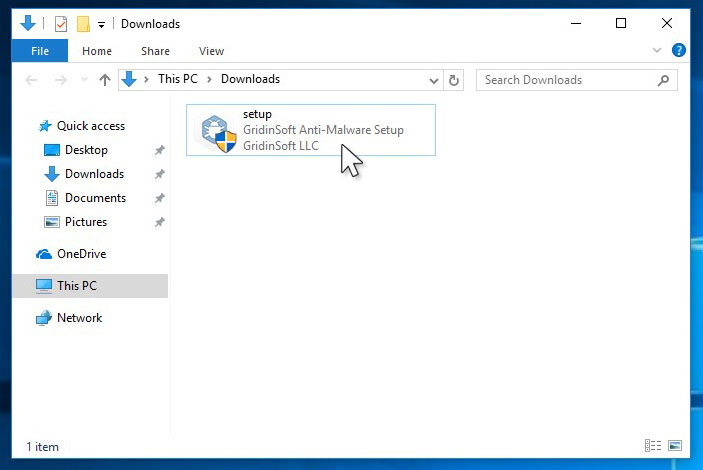
An User Account Control asking you about to allow GridinSoft Anti-Malware to make changes to your device. So, you should click “Yes” to continue with the installation.
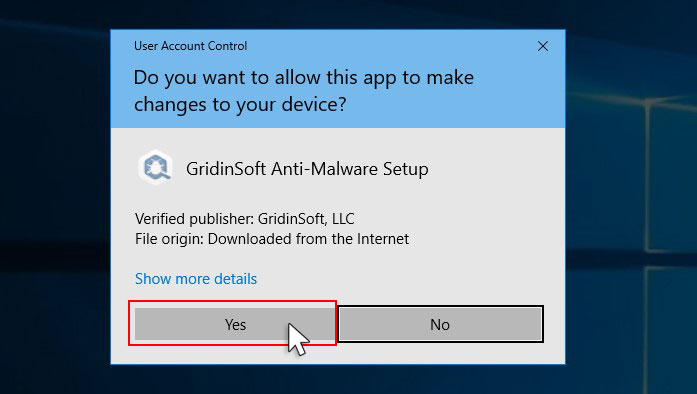
3. Press Install button for run GridinSoft Anti-Malware.
3.Once installed, GridinSoft Anti-Malware will automatically run.
4. Wait for the GridinSoft Anti-Malware scan to complete.
GridinSoft Anti-Malware will automatically start scanning your computer for Win Speedup 2018 and other malicious programs. This process can take a 20-30 minutes, so we suggest you periodically check on the status of the scan process.
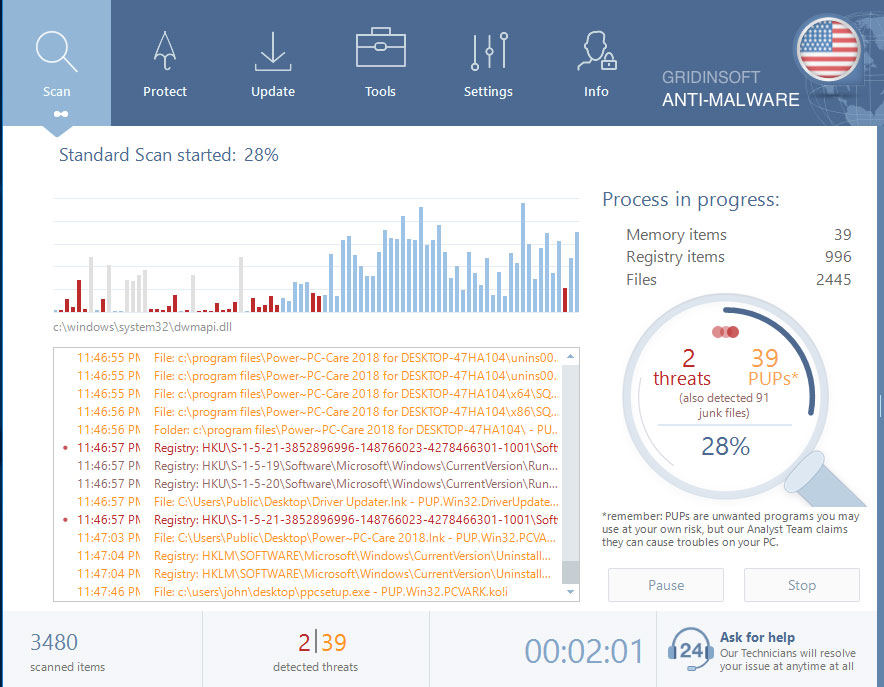
5. Click on “Clean Now”.
When the scan has completed, you will see the list of infections that GridinSoft Anti-Malware has detected. To remove them click on the “Clean Now” button in right corner.
